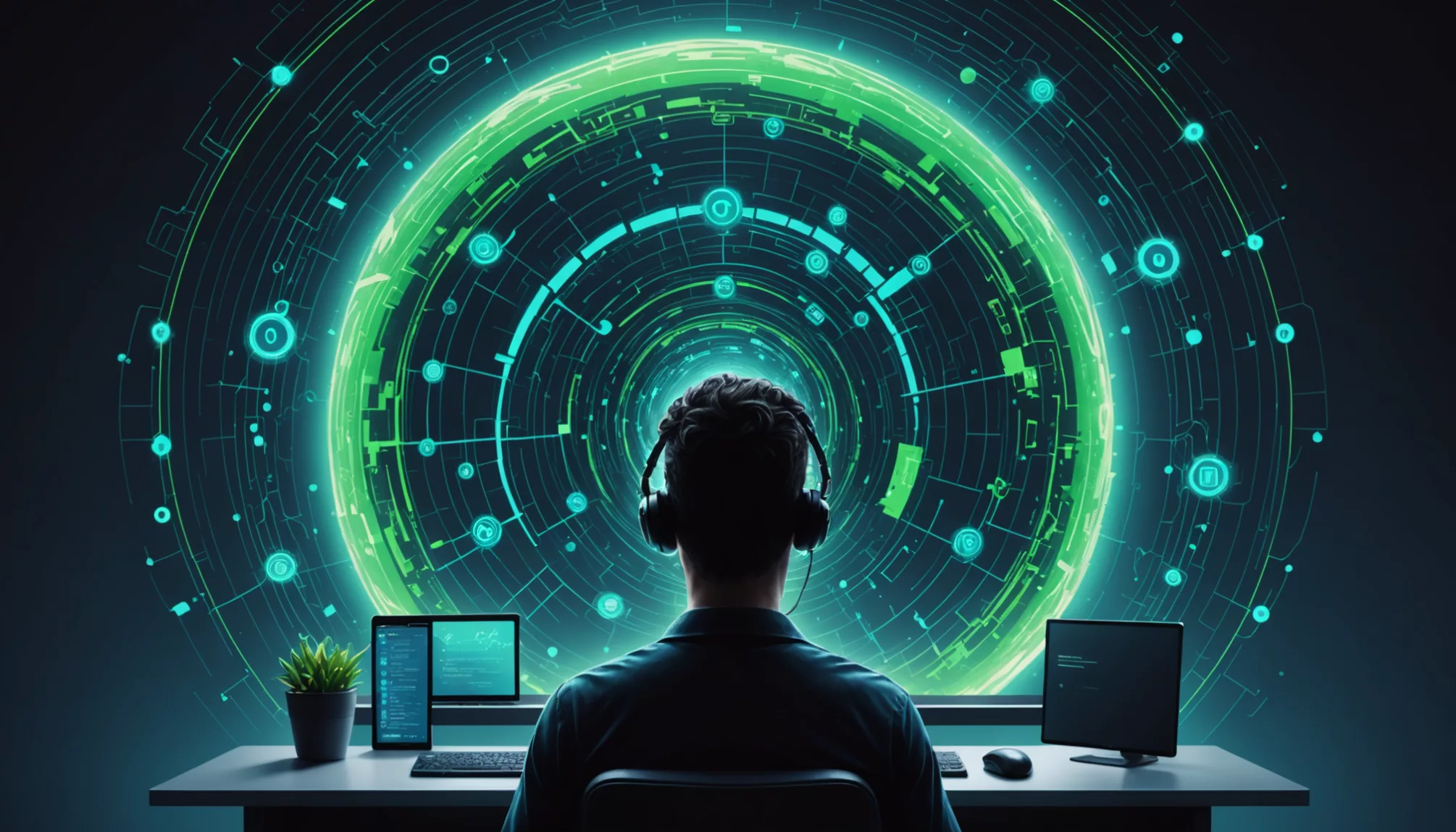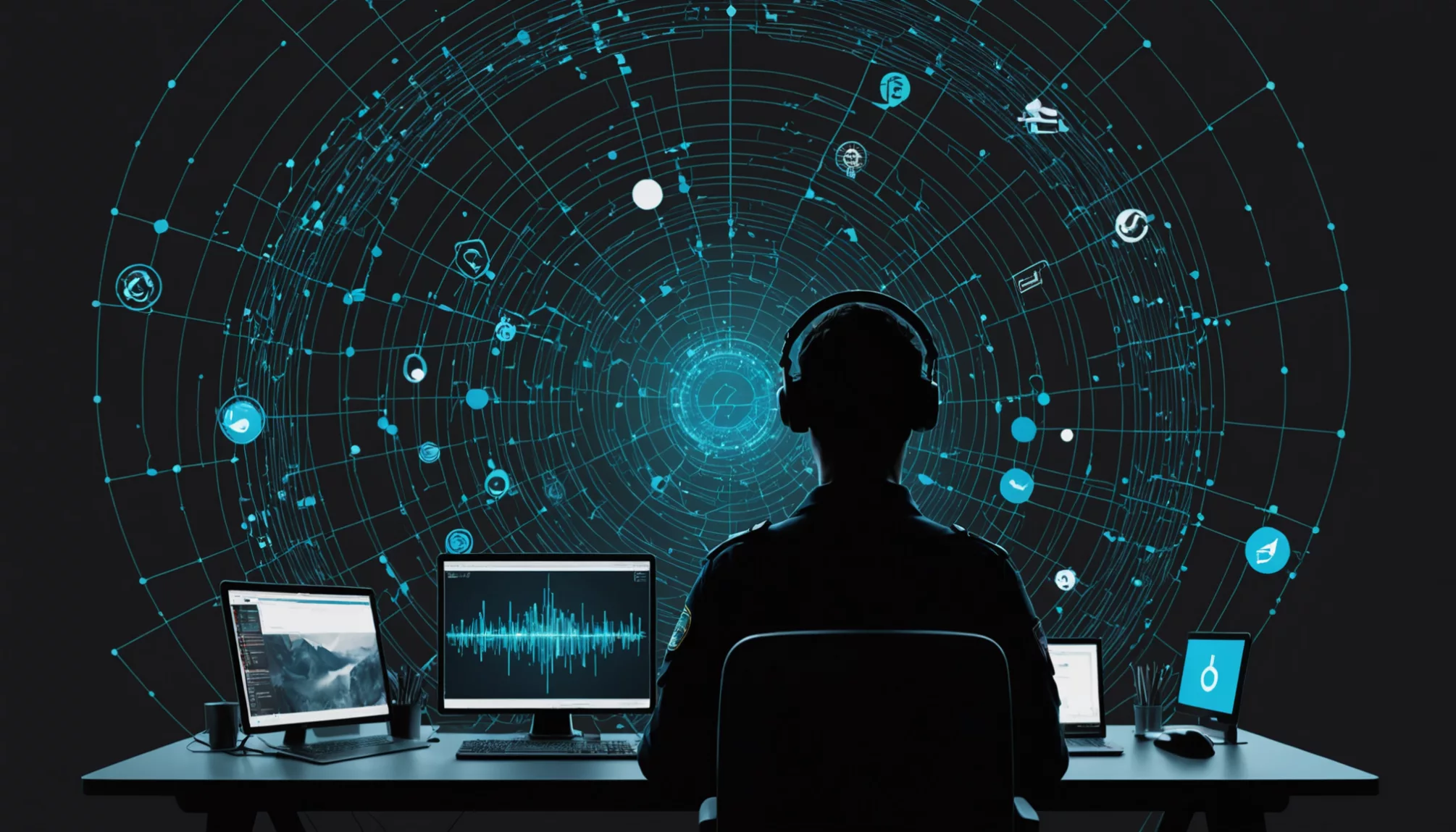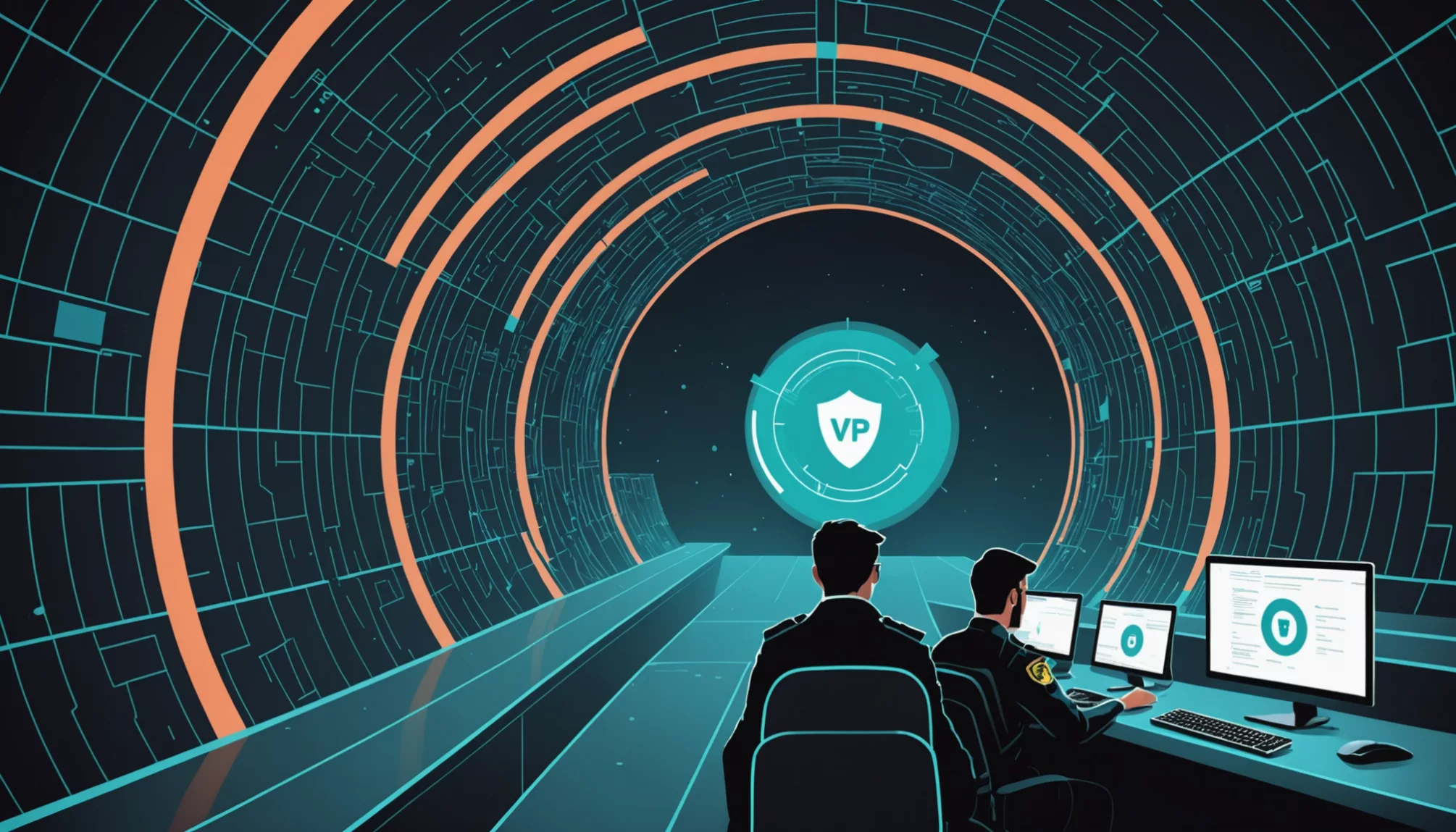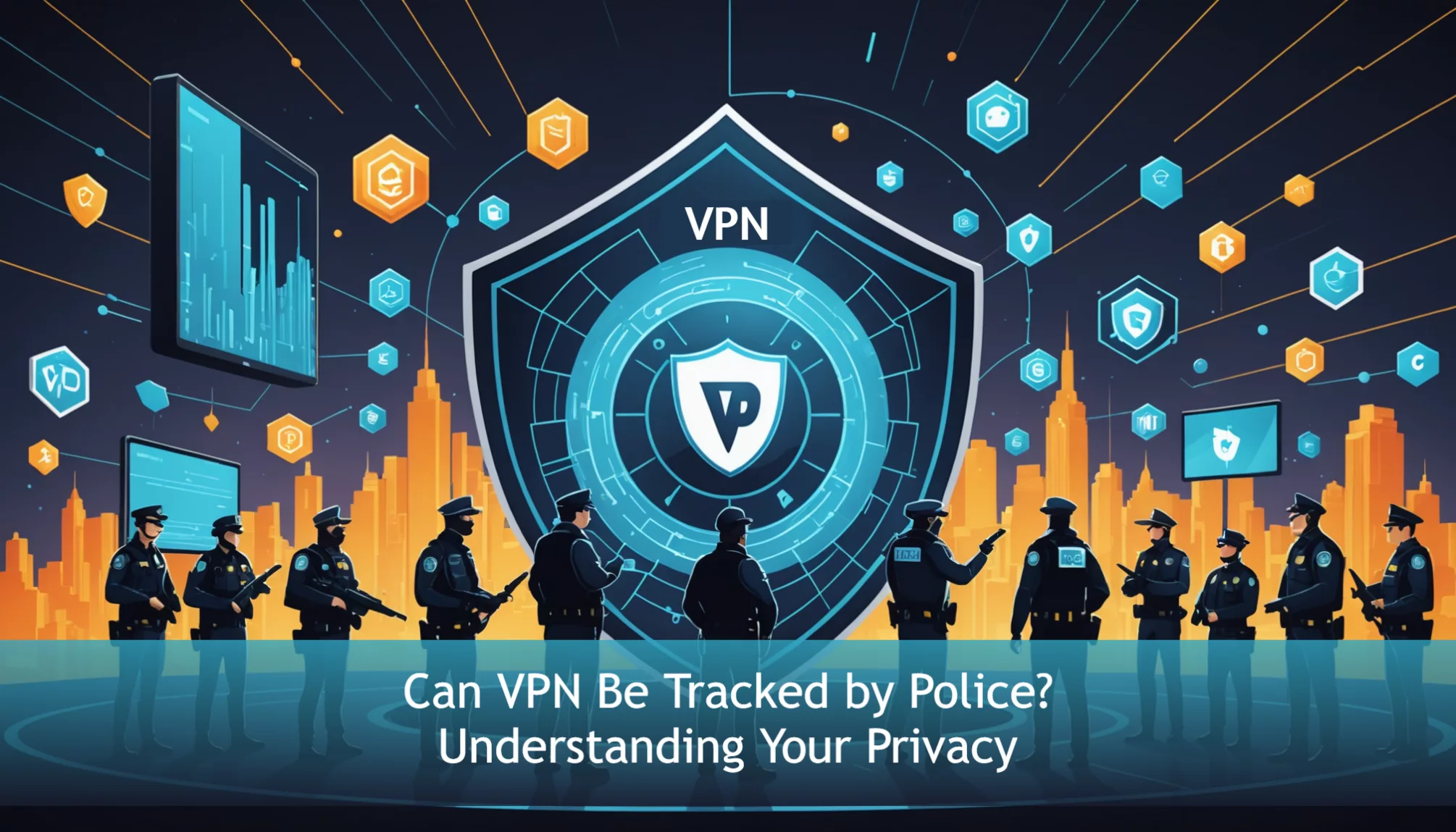Imagine surfing the web with the belief that no one can see you, only to find out that the cops might just be watching! The question, can VPN be tracked by police, is more important than you think in our digital age. With everything from gaming to social media happening online, knowing how secure your internet activity is can make a huge difference.
In this article, we’ll dive into how law enforcement tracks VPN use, the role of Internet Service Providers (ISPs), and what data they can access if they get a court order. Get ready to unlock the secrets of your VPN and learn how to keep your online life private!
Key Takeaways:
- VPNs can mask user identities, but they are not foolproof against police tracking.
- Law enforcement can access user information from VPN providers with the right legal authority.
- Data retention laws and VPN logging policies significantly impact user privacy.
- Choosing a reputable VPN with a strong privacy policy is essential for online security.
Can Police Track a VPN? Understanding the Basics

In today’s digital world, protecting privacy is crucial. Many individuals use Virtual Private Networks (VPNs) to safeguard their online activities. However, a common question arises: can police track a VPN? To understand this issue, it is important to know how law enforcement uses technology and the role of Internet Service Providers (ISPs).
How Police Track VPN Activity
Law enforcement can track VPN usage if they have the right tools and legal permissions, such as warrants or court orders. VPNs help hide a user’s IP address, making it harder for police to identify them. Still, tracking is not impossible. Some VPN services claim to have a “no logs” policy, meaning they do not keep records of user activities. This policy can make police investigations more difficult.
In several cases, criminals have used VPNs to conceal their identities while committing illegal acts. This situation has complicated police efforts to gather evidence (FineVPN). If a VPN provider is legally required to assist law enforcement, they may need to share user data, including connection logs.
The Role of ISPs and Usage Logs
ISPs are also vital in monitoring online activity. They keep logs of user activities, including timestamps and IP address assignments. When a user connects to a VPN, their ISP may not record the specific websites visited. However, they can confirm that the user connected to a VPN service. If law enforcement obtains a court order, ISPs can be required to provide this information.
Data retention policies differ by region, influencing how long ISPs must keep logs. In some areas, ISPs are obligated to retain user data for specified periods, allowing police access under legal conditions. This means that even if a user employs a VPN, their ISP might still have records accessible to law enforcement. (Cyberghostvpn)
What Data Can Be Accessed with a Court Order?
With a court order, police can access various types of data, including:
- Connection Logs: Records showing when a user connected to the VPN and the duration of the connection.
- User Activities: Any logs of actions taken while connected to the VPN, if the provider keeps them.
Some VPNs promote a “no logs” policy for enhanced user privacy. However, whether this policy is upheld depends largely on the jurisdiction and the specific practices of the VPN provider.
How VPNs Work and Their Role in Privacy

What Happens When You Use a VPN?
A VPN reroutes your internet traffic through a secure server operated by your VPN provider. This masks your actual IP address – a unique identifier for your device online. Instead, you appear to be browsing from the VPN server’s location. This makes it much harder for websites, advertisers, and other entities to track your online activities.
The VPN encrypts the data being sent and received. This means that even if someone intercepts this data while it travels across the internet, they cannot read it. The encryption acts like a secret code that only the user and the VPN server can understand. This added layer of security protects the user’s information, especially when using public Wi-Fi networks.
Understanding Encrypted VPN Traffic
VPNs use various encryption protocols to secure internet traffic. Common protocols include OpenVPN, L2TP/IPsec, and IKEv2. Each protocol encrypts data in its own way, but they all aim to keep information private and secure.
Encryption makes it very difficult for anyone, including Internet Service Providers (ISPs) and law enforcement agencies, to see what data is transmitted. While ISPs can detect that a user is connected to a VPN, they cannot see the specific websites visited or the content accessed.
However, encryption levels can vary among VPN providers. Stronger encryption standards, such as AES-256, provide better security than weaker ones. Users should choose a VPN that utilizes strong encryption to better protect their online activities.
Does Using a VPN Ensure Anonymity?
While VPNs offer a degree of anonymity, they do not guarantee complete privacy. Several factors affect this:
- Logging Policies: Some VPN providers keep logs of user activities, including connection times and IP addresses. If law enforcement requests this information, the provider may have to share it.
- Jurisdiction: The laws in the country where the VPN provider is based can impact privacy. Some countries enforce strict data retention laws, requiring providers to store user data for specific durations.
- User Behavior: If a user engages in activities that attract law enforcement attention, such as illegal downloads, they may still be tracked, regardless of using a VPN.
Data Retention Laws and Police Tracking

How Data Retention Affects VPN Users
Data retention laws play a significant role in how long VPN providers store user information. Many countries require VPN providers and Internet Service Providers (ISPs) to keep user data for set periods. This data may include connection logs, timestamps, and user activity records. When police acquire a court order, they can access this stored information, which might reveal a user’s online activities, even if a VPN is used.
For VPN users, selecting a provider with a strong no-logs policy is essential. A no-logs policy means the VPN does not keep records of user activities, enhancing user privacy. It is wise to choose VPN services based in countries with relaxed data retention laws. These providers are less likely to store user data, reducing the risk of police tracking.
Different Laws in Different Countries
Countries have different laws about data retention and privacy. The “Five Eyes” alliance—comprising Australia, Canada, New Zealand, the UK, and the US—enforces strict data retention laws. These laws can compel VPN providers to log user data and cooperate with law enforcement requests.
In contrast, countries with more lenient data retention laws can offer better privacy protections for users. VPN providers in these areas may not be required to keep logs, making it more difficult for law enforcement to track users. Users should familiarize themselves with the laws in their own country and the country where their VPN provider operates. This understanding can help users select a VPN that fits their privacy needs.
The Impact of Law Enforcement on VPN Providers
Law enforcement can put considerable pressure on VPN providers, especially in countries with strict data-sharing agreements. VPN providers may face legal obligations to comply with government requests for user information, including logs and connection details.
This pressure creates a dilemma for VPN providers. Working with law enforcement can harm their reputation among users who prioritize privacy. Providers seen as compliant may lose customers who want to preserve their anonymity online. Therefore, how a VPN provider responds to law enforcement inquiries can significantly affect its business and user base.
The Electronic Frontier Foundation emphasizes the importance of understanding the legal landscape surrounding VPN usage.
Tips to Keep Your VPN Usage Private

Using a VPN helps protect privacy online. However, not every VPN offers the same level of protection. Here are tips to ensure that VPN usage remains secure and private.
Choosing a VPN Provider Wisely
Selecting the right VPN provider is essential for user privacy. Consider these key points:
- No-Log Policies: Choose VPNs that clearly state they do not keep logs of user activity. This means they do not track or store what users do online. A no-log policy reduces the risk of any data being handed to authorities.
- Reputation and Transparency: Research the provider’s reputation. Opt for VPNs with positive reviews and a proven history of protecting user privacy. Transparency about their operations is a good sign of reliability.
- Jurisdiction: Consider where the VPN provider is based. Some countries have strict privacy laws that do not require companies to store user data. This location can help keep user information safe from law enforcement requests.
Features to Look for in a Secure VPN
A secure VPN should offer essential features to protect users’ data. Here are the most important ones:
- Strong Encryption: Ensure the VPN uses strong encryption protocols like AES-256. This encryption secures data sent over the internet, making it difficult for anyone to intercept and read it.
- Kill Switch: This feature automatically disconnects the internet if the VPN connection drops. This prevents the user’s real IP address from being exposed if the VPN fails unexpectedly.
- DNS Leak Protection: Look for a VPN that protects against DNS leaks. This means that even if the VPN connection drops, the user’s DNS queries (which can reveal browsing history) remain protected.
How to Ensure Your VPN is Not Logging Data
To confirm that a VPN is not logging user data, take these steps:
- Read the Privacy Policy: Before choosing a VPN, carefully read its privacy policy. This document outlines what data the provider collects and how it is used. Look for clear statements about no data retention.
- Independent Audits: Some VPN providers undergo independent audits to verify their privacy claims. Check if the VPN has been audited by a third party and what the results were. This provides extra assurance that they do not log user data.
- User Reviews and Feedback: Research user experiences with the VPN. Look for any complaints or issues regarding privacy and data logging. This can provide insight into the provider’s actual practices.
Expert Opinions on VPN Tracking

Insights from Cybersecurity Experts
Cybersecurity experts stress the need to understand how Virtual Private Networks (VPNs) relate to law enforcement and data tracking. VPNs greatly enhance online privacy, but they are not completely immune to tracking. When investigating serious crimes, law enforcement can secure court orders to access logs from VPN providers. If a VPN provider keeps usage logs, this information can be shared with police, revealing user identities.
Experts caution that users may wrongly believe they are entirely anonymous while using a VPN. This belief stems from the fact that VPNs encrypt internet traffic and mask the user’s IP address. However, if the VPN provider retains data, this information could still be disclosed. Experts recommend choosing VPN services that clearly state a “no logs” policy, which means the provider does not store user activity that could be tracked or shared with authorities.
Case Studies on VPN Usage and Law Enforcement
Several notable cases illustrate how law enforcement has tracked VPN users involved in criminal activities. In one case, police traced a suspect in a serious cybercrime investigation back to a VPN. By obtaining a court order, law enforcement accessed the VPN provider’s logs, revealing the user’s identity. This case highlights the risks for users who believe their VPN usage guarantees full anonymity.
Another significant case involved law enforcement tracking individuals suspected of illegal file sharing. Police accessed VPN logs to identify users distributing copyrighted material without authorization. These examples show that while VPNs offer security, they cannot ensure complete protection against law enforcement actions.
VPN Privacy Key Points and Future Outlook

Summary of Key Points on VPN Privacy
VPNs, or Virtual Private Networks, are tools designed to boost online privacy and security. They encrypt internet traffic and hide a user’s IP address, shielding personal information from hackers and Internet Service Providers (ISPs).
However, users should be aware of their limitations. While VPNs help protect data, they do not ensure complete anonymity. If a VPN provider keeps logs, law enforcement can access this information with a court order. Therefore, users must understand their provider’s logging practices and the legal regulations in their area, as these factors greatly impact privacy.
Future of VPNs in the Context of Law Enforcement
As VPN usage grows, law enforcement agencies are changing their approaches. With increased internet activity and online crime, police may seek better ways to track VPN users.
In countries with strict data retention laws, VPN providers may be required to store activity logs, making it easier for police to trace online actions. In contrast, providers located in privacy-friendly jurisdictions may not have such obligations. The future of VPNs will likely be influenced by ongoing changes in digital privacy laws, which can create challenges for users who want to maintain online anonymity.
Practical Steps to Enhance Your Online Privacy
To improve online privacy while using a VPN, users should consider these practical steps:
- Choose a Reputable VPN Provider: Select providers with a clear no-logs policy and a strong reputation for protecting user privacy. Consider their location, as some jurisdictions have stricter privacy laws.
- Understand Encryption Standards: Opt for VPNs that use strong encryption methods, such as AES-256. This level of encryption makes it hard for unauthorized entities to access data.
- Regularly Review Privacy Policies: Read and understand the privacy policies of the chosen VPN provider. Verify how the provider handles user data and if they have undergone third-party audits.
- Stay Informed About Data Privacy Laws: Keep up with changes in laws that affect internet privacy and VPN usage. Being aware of local regulations helps users make informed decisions.
- Utilize Additional Privacy Tools: Combine a VPN with other privacy tools, like secure browsers and ad blockers, to further protect online activities and enhance security.
Conclusion
In today’s world, understanding your online safety is super important! We learned that while police can track VPN activity, it depends on several factors like ISP logs and data retention laws. Using a VPN helps keep your internet activity private, but it doesn’t guarantee complete anonymity. Choosing a reputable VPN provider is crucial for maintaining your privacy.
As you explore more about online security, remember that the digital world is always changing. Stay curious and keep learning about ways to protect your online presence. Your online safety is in your hands!
FAQs
1. Can Police Track a VPN?
Yes, police can track VPN users under certain conditions. While VPNs mask IP addresses, law enforcement can request data from VPN providers with a court order. This may include user activity logs if the provider retains such records.
2. How Police Track VPN Activity
Law enforcement can trace activities back to the internet service provider (ISP). If an individual is suspected of criminal behavior, police can request logs or user information from the VPN provider, particularly if the VPN operates in a region with strict data retention laws.
3. The Role of ISPs and Usage Logs
ISPs log user activity and may be required to share this information with law enforcement. This can include timestamps, data usage, and the IP addresses assigned to users.
4. What Data Can Be Accessed with a Court Order?
A court order can compel VPN providers to disclose user data, including the user’s real IP address, connection logs, and usage patterns. The specifics depend on the provider’s logging policy and local regulations.
5. How VPNs Work and Their Role in Privacy
When using a VPN, your internet traffic is routed through a secure server that encrypts the data. This process makes it difficult for third parties to intercept and read the information being transmitted.

